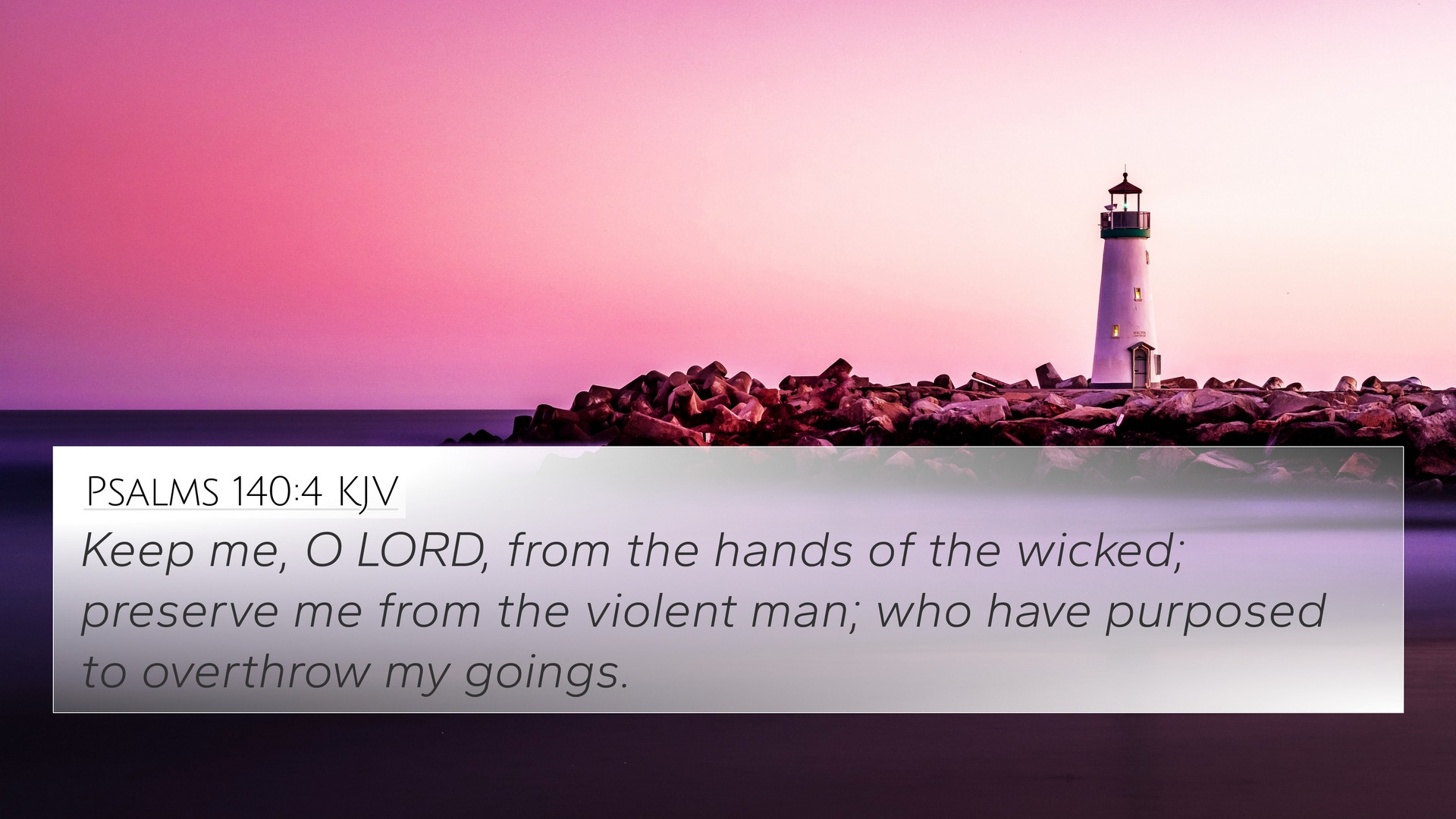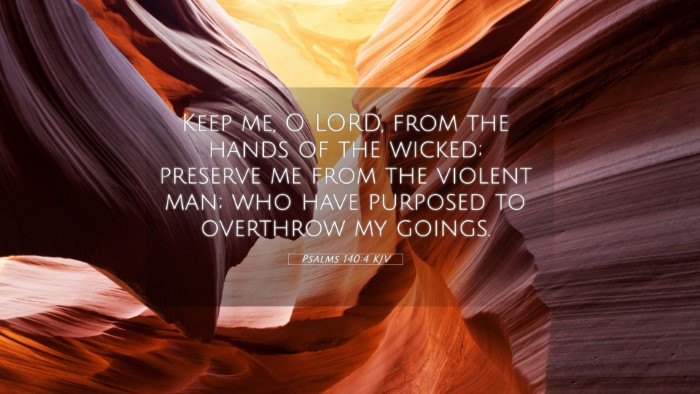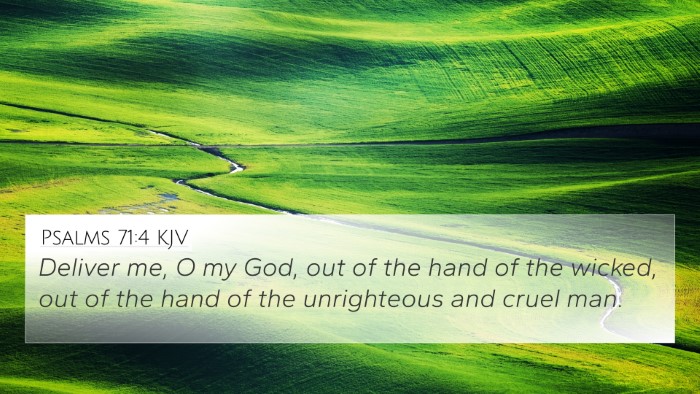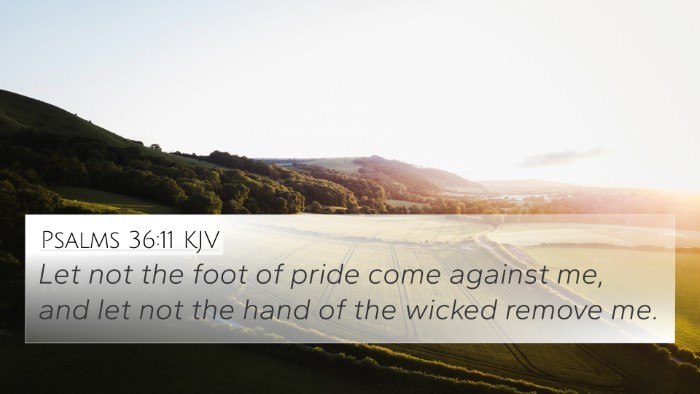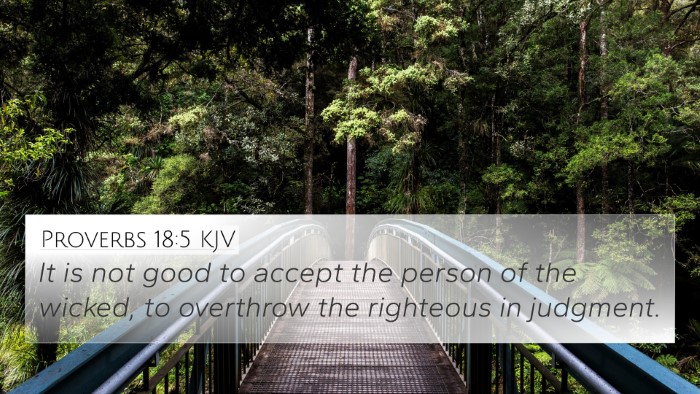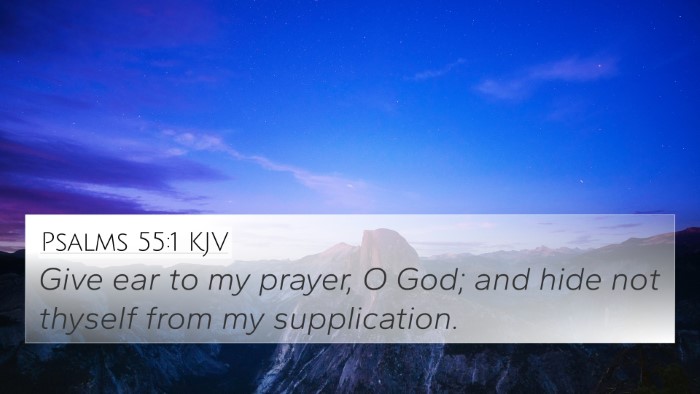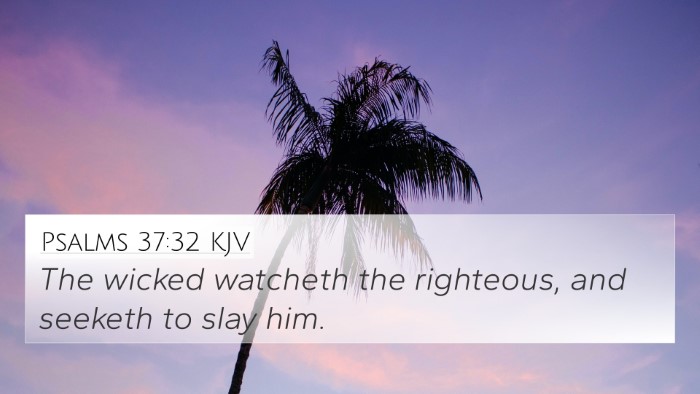Psalms 140:4 - Meaning and Interpretation
Bible Verse: Psalms 140:4 - "Keep me, O Lord, from the hands of the wicked; preserve me from violent men, who have purpose to make my steps stumble."
Summary of Verse Meaning
Psalms 140:4 expresses a heartfelt plea for divine protection against the wicked and violent individuals who seek to cause harm and hinder one’s life journey. This verse signifies an appeal for preservation from physical and spiritual dangers, reflecting the psalmist's deep reliance on God as a safeguard.
Insights from Public Domain Commentaries
Matthew Henry's Commentary
Matthew Henry emphasizes the necessity of divine intervention in situations where individuals are threatened by evil intentions. He notes that the psalmist recognizes the persistent presence of adversaries who intend to lead him astray. Henry highlights the importance of spiritual vigilance, urging believers to seek God's guidance and protection regularly.
Albert Barnes' Notes on the Bible
Albert Barnes elaborates on the various aspects of this verse, focusing on the 'hands of the wicked' and 'violent men.' He interprets this imagery as a metaphor for the actions and influence of those who oppose God’s will, urging Christians to observe their conduct and remain steadfast in faith amidst such adversities. He asserts that trusting in God’s preservation is crucial for overcoming life's tumultuous challenges.
Adam Clarke's Commentary
Adam Clarke takes a historical approach, discussing the context in which David penned this psalm. He interprets "violent men" as potentially referring to factions or enemies during David's reign and discusses the broader implications of this request for protection. Clarke points out the universal nature of such prayers within the faith experience, as many believers face similar threats in their lives.
Bible Cross References
- 2 Samuel 22:3: "The God of my rock; in him will I trust: he is my shield, and the horn of my salvation, my high tower, and my refuge, my saviour; thou savest me from violence."
- Psalm 18:48: "He delivereth me from mine enemies: yea, thou liftest me up above those that rise up against me: thou hast delivered me from the violent man."
- Proverbs 2:12: "To deliver thee from the way of the evil man, from the man that speaketh froward things."
- Job 5:21: "Thou shalt be hid from the scourge of the tongue: neither shalt thou be afraid of destruction when it cometh."
- 1 Peter 5:8: "Be sober, be vigilant; because your adversary the devil, as a roaring lion, walketh about, seeking whom he may devour."
- Psalm 37:14: "The wicked have drawn out the sword, and have bent their bow, to cast down the poor and needy, and to slay such as be of upright conversation."
- Isaiah 54:17: "No weapon that is formed against thee shall prosper; and every tongue that shall rise against thee in judgment thou shalt condemn."
- Ephesians 6:11: "Put on the whole armor of God, that ye may be able to stand against the wiles of the devil."
- Psalm 59:2: "Deliver me from the workers of iniquity, and save me from bloody men."
- Romans 12:19: "Dearly beloved, avenge not yourselves, but rather give place unto wrath: for it is written, Vengeance is mine; I will repay, saith the Lord."
Thematic Connections to Other Bible Verses
Throughout scripture, various verses resonate with the themes found in Psalms 140:4, particularly regarding the constant struggle between righteousness and wickedness. Understanding the connections between these verses enhances our grasp of God’s intention to protect and guide believers in the face of adversaries.
Many scholars employ tools for cross-referencing Biblical texts, significantly enriching both personal study and group discussions on these foundational wisdom themes. By exploring such texts, one can observe how different scriptures converse with one another, providing deeper insight into the character of God as protector and deliverer.
Conclusion
The message of Psalms 140:4 is enduringly relevant, serving as a reminder of the necessity for reliance on God amidst adversity. The verse not only stands alone as a plea for protection but also intricately links to various Biblical narratives and teachings that stress the importance of seeking divine intervention. In our pursuit of understandings, tools like a Bible concordance and cross-reference guides can illuminate these connections, aiding us in a deeper appreciation of God’s Word.
